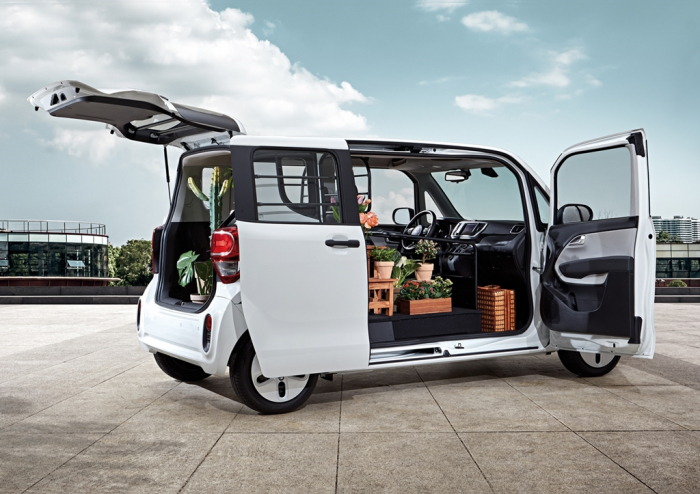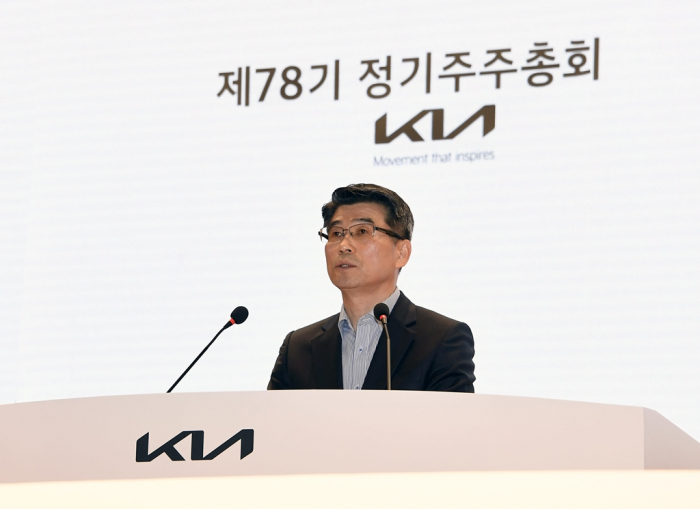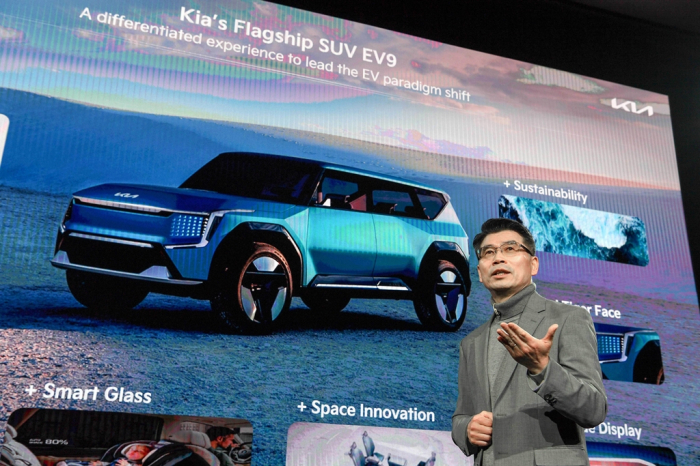Automobiles
Kia set to break ground on purpose-built vehicle plant in 2023
The automaker aims to become the leader in the global PBV market by 2030
By Mar 30, 2022 (Gmt+09:00)
2
Min read
Most Read
LG Chem to sell water filter business to Glenwood PE for $692 million


Kyobo Life poised to buy Japan’s SBI Group-owned savings bank


KT&G eyes overseas M&A after rejecting activist fund's offer


StockX in merger talks with Naver’s online reseller Kream


Mirae Asset to be named Korea Post’s core real estate fund operator



Kia Corp., South Korea’s second-largest automaker, plans to break ground on the construction of its first purpose-built vehicle (PBV) plant next year with an aim to start mass production in 2025.
During its annual shareholders’ meeting on Tuesday, Chief Executive Song Ho-sung said the company will create an ecosystem for the country’s fostering of the PBV market with the opening of the plant.
Kia’s PBV business is part of its future mobility strategy dubbed Plan S, meaning a plan for a shift toward future mobility.
Last week, the company said it is considering building a new domestic factory for the first time in 25 years to produce purpose-built vehicles at its Hwaseong plant, south of Seoul.

Kia and its larger automaking affiliate Hyundai Motor Co. haven’t increased production capacity in Korea for more than two decades as the local market appeared to have saturated.
However, the market for personalized vehicles has great potential as such cars can be used for various purposes such as public transportation, clinics, cafes, living space and freight transfer, according to Kia.
When PBVs are commercialized, they are expected to act as a new type of living space, it said. The company also plans to add self-driving technology to its PBVs.
Kia expects purpose-built vehicles to account for about a quarter of all cars sold globally by 2030.

AUTO CHIP SHORTAGE TO EASE IN H2
Regarding the car production delays caused by the global automotive chip shortage, CEO Song said he expects conditions to start easing from the second half of this year.
Currently, customers have to wait up to 16 months to receive a car they ordered because of the auto chip shortage.
He said the company will expand its complete knock-down or CKD business, in which a product is delivered in parts and assembled at the destination, in emerging markets, including China.

Hyundai and Kia’s overall car sales in China have been declining since 2016 amid aggressive marketing by their global rivals and in the aftermath of a diplomatic dispute between Seoul and Beijing over the deployment in Korea of a US anti-missile system in 2017.
Kia’s China sales reached 8,500 cars in February, accounting for a mere 0.7% of the market, down from a market share of 1.5% in the same month of 2019.
Write to Hyung-Kyu Kim at khk@hankyung.com
In-Soo Nam edited this article.
More to Read
-
 Future mobilityKia plans new Korea plant first time in 25 years for purpose-built vehicles
Future mobilityKia plans new Korea plant first time in 25 years for purpose-built vehiclesMar 24, 2022 (Gmt+09:00)
3 Min read -
 Electric vehiclesKia aims to launch 14 all-electric models by 2027
Electric vehiclesKia aims to launch 14 all-electric models by 2027Mar 03, 2022 (Gmt+09:00)
3 Min read -
 Electric vehiclesHyundai accelerates electrification strategy, targets 7% of EV market
Electric vehiclesHyundai accelerates electrification strategy, targets 7% of EV marketMar 02, 2022 (Gmt+09:00)
4 Min read -
 Chief ExecutivesKia aims to become purpose-built vehicle market leader: CEO
Chief ExecutivesKia aims to become purpose-built vehicle market leader: CEOFeb 02, 2021 (Gmt+09:00)
4 Min read
Comment 0
LOG IN


